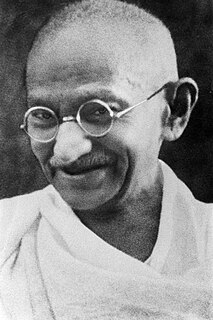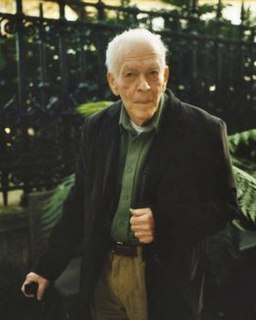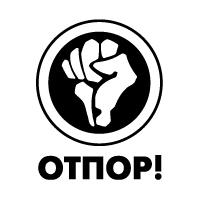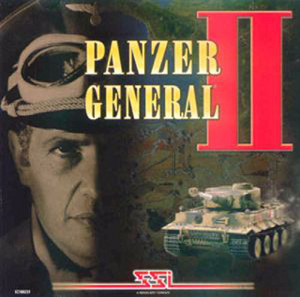
Pacifism is the opposition or resistance to war, militarism or violence. The word pacifism was coined by the French peace campaigner Émile Arnaud and adopted by other peace activists at the tenth Universal Peace Congress in Glasgow in 1901. A related term is ahimsa, which is a core philosophy in Indian Religions such as Hinduism, Buddhism, and Jainism. While modern connotations are recent, having been explicated since the 19th century, ancient references abound.

The 1954–1968 civil rights movement in the United States was preceded by a decades-long campaign by African Americans and their like-minded allies to end legalized racial discrimination, disenfranchisement and racial segregation in the United States. The movement has its origins in the Reconstruction era during the late 19th century, although it made its largest legislative gains in the mid-1960s after years of direct actions and grassroots protests. The social movement's major nonviolent resistance and civil disobedience campaigns eventually secured new protections in federal law for the human rights of all Americans.
A resistance movement is an organized effort by least portion of the civil population of a country to withstand the legally established government or an occupying power and to disrupt civil order and stability. It may seek to achieve its objectives through either the use of nonviolent resistance, or the use of force, whether armed or unarmed. In many cases, as for example in the United States during the American Revolution, or in Norway in the Second World War, a resistance movement may employ both violent and non-violent methods, usually operating under different organizations and acting in different phases or geographical areas within a country.

Nonviolence is the personal practice of not causing harm to one's self and others under every condition. It may come from the belief that hurting people, animals and/or the environment is unnecessary to achieve an outcome and it may refer to a general philosophy of abstention from violence. It may be based on moral, religious or spiritual principles, but also the reasons for it may be purely strategic or pragmatic.

A protest is a public expression of objection, disapproval or dissent towards an idea or action, typically a political one. Protests can be thought of as acts of cooperation in which numerous people cooperate by attending, and share the potential costs and risks of doing so. Protests can take many different forms, from individual statements to mass demonstrations. Protesters may organize a protest as a way of publicly making their opinions heard in an attempt to influence public opinion or government policy, or they may undertake direct action in an attempt to enact desired changes themselves. Where protests are part of a systematic and peaceful nonviolent campaign to achieve a particular objective, and involve the use of pressure as well as persuasion, they go beyond mere protest and may be better described as a type of protest called civil resistance or nonviolent resistance.

James Morris Lawson Jr. is an American activist and university professor. He was a leading theoretician and tactician of nonviolence within the Civil Rights Movement. During the 1960s, he served as a mentor to the Nashville Student Movement and the Student Nonviolent Coordinating Committee. He was expelled from Vanderbilt University for his civil rights activism in 1960, and later served as a pastor in Los Angeles for 25 years.

Gene Sharp was an American political scientist. He was the founder of the Albert Einstein Institution, a non-profit organization dedicated to advancing the study of nonviolent action, and professor of political science at the University of Massachusetts Dartmouth. He was known for his extensive writings on nonviolent struggle, which have influenced numerous anti-government resistance movements around the world. Unofficial sources have claimed that Sharp was nominated for the Nobel Peace Prize in 2015, and had previously been nominated three times, in 2009, 2012 and 2013. Sharp was widely considered the favorite for the 2012 award. In 2011, he was awarded the El-Hibri Peace Education Prize. In 2012, he was a recipient of the Right Livelihood Award for "developing and articulating the core principles and strategies of nonviolent resistance and supporting their practical implementation in conflict areas around the world", as well as the Distinguished Lifetime Democracy Award.

Otpor was a political organization in Serbia from 1998 until 2004.

A nonviolent revolution is a revolution conducted primarily by unarmed civilians using tactics of civil resistance, including various forms of nonviolent protest, to bring about the departure of governments seen as entrenched and authoritarian without the use or threat of violence. While many campaigns of civil resistance are intended for much more limited goals than revolution, generally a nonviolent revolution is characterized by simultaneous advocacy of democracy, human rights, and national independence in the country concerned.

Panzer General II is a computer wargame by Strategic Simulations, Inc. Released October 15, 1997, Panzer General II is the sixth SSI game in the Panzer General series and the first in the "Living Battlefield" series. It takes place during World War II, covering events from the Spanish Civil War in 1938 to hypothetical battles in 1946. In the April 2000 issue of the magazine PC Gamer, it was voted the 44th best computer game of all time, and the highest rating in the Panzer General series. The game was re-released in 2010 on GOG.com.
Steven H. York is a documentary filmmaker and video game creator who has worked in Europe, Asia, Africa, and North and South America on subjects ranging from religious fundamentalism to American history to nonviolent conflict.

A Force More Powerful is a 1999 feature-length documentary film and a 2000 PBS series written and directed by Steve York about nonviolent resistance movements around the world. Executive producers were Dalton Delan and Jack DuVall. Peter Ackerman was the series editor and principal content advisor.

Peter Ackerman is a businessman, the founder and former chairman of Americans Elect, and is founding chair of the International Center on Nonviolent Conflict. Ackerman is the managing director of Rockport Capital, Inc.
Civil resistance is political action that relies on the use of nonviolent resistance by civil groups to challenge a particular power, force, policy or regime. Civil resistance operates through appeals to the adversary, pressure and coercion: it can involve systematic attempts to undermine or expose the adversary's sources of power, both domestic and international. Forms of action have included demonstrations, vigils and petitions; strikes, go-slows, boycotts and emigration movements; and sit-ins, occupations, and the creation of parallel institutions of government.

Nonviolent resistance (NVR), or nonviolent action, is the practice of achieving goals such as social change through symbolic protests, civil disobedience, economic or political noncooperation, satyagraha, or other methods, while being nonviolent. This type of action highlights the desires of an individual or group that feels that something needs to change to improve the current condition of the resisting person or group.

Srđa Popović is a Serbian political activist. He was a leader of the student movement Otpor! that helped topple Serbian president Slobodan Milošević. After briefly pursuing a political career in Serbia, he established the Centre for Applied Nonviolent Action and Strategies (CANVAS) in 2003 and published Blueprint for Revolution in 2015. CANVAS has worked with pro-democracy activists from more than 50 countries, promoting the use of non-violent resistance in achieving political and social goals.
The Centre for Applied Nonviolent Action and Strategies(CANVAS) is a non-profit, non-governmental, educational institution focused on the use of nonviolent conflict, based in Belgrade, Serbia. It was founded in 2004 by Srđa Popović and the CEO of Orion Telecom, Slobodan Đinović. Both were former members of the Serbian youth resistance movement, Otpor!, which supported the overthrow of Slobodan Milošević in October 2000. Drawing upon the Serbian experience, CANVAS seeks to educate pro-democracy activists around the world in what it regards as the universal principles for success in nonviolent struggle.
Stellan Vinthagen is a professor of sociology, a scholar-activist, and the Inaugural Endowed Chair in the Study of Nonviolent Direct Action and Civil Resistance at the University of Massachusetts, Amherst, where he directs the Resistance Studies Initiative. He is also Co-Leader of the Resistance Studies Group at University of Gothenburg and co-founder of the Resistance Studies Network, as well as Editor of the Journal of Resistance Studies, and a Council Member of War Resisters International (WRI), and academic advisor to the International Center on Nonviolent Conflict (ICNC). His research is focused on resistance, power, social movements, nonviolent action, conflict transformation and social change. He has since 1980 been an educator, organizer and activist in several countries, and has participated in more than 30 nonviolent civil disobedience actions, for which he has served in total more than one year in prison.

Direct action originated as a political activist term for economic and political acts in which the actors use their power to directly reach certain goals of interest; in contrast to those actions that appeal to others ; by, for example, revealing an existing problem, using physical violence, highlighting an alternative, or demonstrating a possible solution.

Diversity of tactics is a phenomenon wherein a social movement makes periodic use of force for disruptive or defensive purposes, stepping beyond the limits of nonviolent resistance, but also stopping short of total militarization. It also refers to the theory which asserts this to be the most effective strategy of civil disobedience for social change. Diversity of tactics may promote nonviolent tactics, or armed resistance, or a range of methods in between, depending on the level of repression the political movement is facing. It sometimes claims to advocate for "forms of resistance that maximize respect for life".















